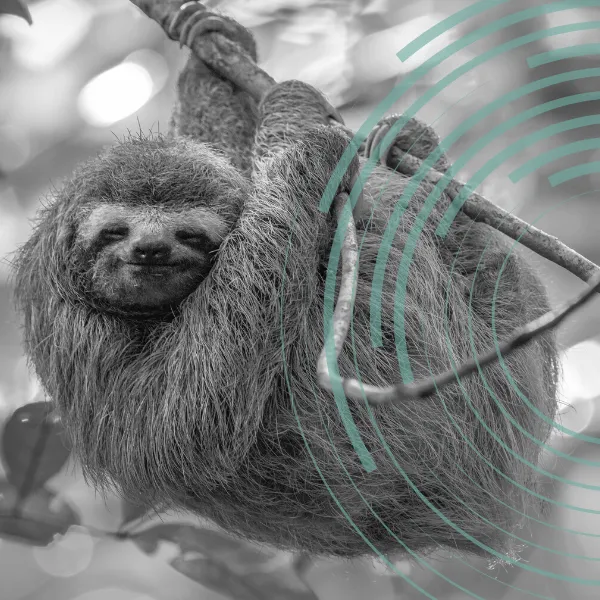When Boredom Strikes - it ain’t all bad

Boredom isn’t quite as straight forward as you might think. So far psychologists have identified five different types of boredom each characterised by different symptoms and settings.
- Searching boredom - prompts you to do something out of the ordinary. It leads to actions, for better or worse, to shake off the boredom. You might email a friend you haven’t spoken to in a while or decide to test out whether you can build a rocket in your backyard.
- Calibrating boredom – this is boredom with a wandering mind. You think about all the things you could or should be doing but never actually get up and do them.
- Reactant boredom - when you can’t get away from the boring situation. There’s more than a little anger that comes with this as it happens when you’re in a situation you can’t change. It’s the boredom you feel when you’re in a meeting at work, sitting in a lecture, or when you’re stuck in traffic.
- Indifferent boredom – when you’re happy to be bored. Think about that time after a long busy day when you have nothing to do and nowhere to be.
- Apathetic boredom – is described as a lack of motivation to do anything to get out of the bored state of mind, often associated with depression.
- When I was navigating one of my darkest bouts of depression several years ago, I would have described myself as being bored most of the time. There was no joy to be found in any part of my life.
In my idle state I became frustrated at my inability to funnel my energy into productive or engaging tasks and would often get lost in purposeless and even destructive activities.
Boredom in itself is not detrimental to your well-being; it’s how you handle it that determines whether it’s a positive or negative experience. When properly channelled it can become the motivation that drives you to learn, explore and experiment with the infinite creativity inherent in you.
Boredom is not a dragon to be slain
If you’re like me you were raised in an environment where being bored is seen as something that must be avoided at all costs. The cure? To be productive. Keep busy, to ensure every waking moment is filled with useful, exciting activities.
'Work hard, play hard, sleep when you’re dead’ mentality has fuelled the idea that we must do everything we can to ward off the boredom monster. In fact, this thinking is so ingrained that a team of psychologists discovered that the participants of a study into boredom would rather self-administer electric shocks than sit alone in a room with their own thoughts for 15 minutes.[1]
The search for stimulus
One commonly accepted definition of boredom is “the aversive experience of wanting, but being unable, to engage in satisfying activity.”
The human mind thrives on novelty. What was once a source of pleasure can become tedious with time. Though your life is full, boredom lurks around every corner because you innately long for new experiences. Our world has evolved to meet this hunger through technology.
As a society we’re as overstimulated as a toddler who just ate all the smarties.
From an early age we’re trained to desire and even require continual distraction.
The tech trap
How many of us are spending more time in front of screens, and often not just one? You’re working at a computer, maybe the TV is on in the background. Your phone sits next to you on your desk relentlessly delivering its trivia. You have to finish a task, but you’ve slithered down the ‘hot link’ rabbit hole in search of answers to a question that in a couple of hours will barely be remembered, never mind of any relevance.
You can’t settle on one thing for fear of missing out on something else. You feel restless, frustrated, and dissatisfied; a prisoner of the framework of technology that’s supposed to be for your comfort and entertainment.
Cultural attachment to technology is paradoxically both destroying our ability to be bored and preventing us from being truly entertained.
This behaviour isn’t limited to technology either. You can just as easily be browsing a shelf of books, where there is nothing to read. Eager for the enforced stillness of a long car journey to end. Feeling the weight of a lonely evening stretching out ahead of you without promise of pleasure or incident.
We’re trying to swipe or scroll the boredom away, but this action creates a vicious cycle in that we actually make ourselves more prone to boredom. When you choose to actively fill the emptiness, you’re denying yourself the opportunity to become an innovator.
Is boredom good for you?
Martin Heidegger, the existential philosopher, suggested “being bored affords a rare opportunity to appreciate the passing of time without illusion. Take away all distraction and the boredom that inevitably unfolds creates a space to contemplate emptiness, nothingness. It’s a window into seeing the world as it really is.”
While you and I probably don’t share Heidegger’s enthusiasm for nothingness to quite the same extent, the man has a point.
Boredom allows you to see your world more clearly, to problem solve, stay present and not be drawn into the next meaningless distraction.
Sounds a lot like meditation, doesn’t it?
Jon Kabat-Zinn, famous for popularising meditation in the West, said:
“When you pay attention to boredom it gets unbelievably interesting.”
Mindfulness practises start with paying attention to small things like your breath or a particular part of your body. Through consistent practice this focus expands to train your brain to observe ‘life situations’ without getting caught up in them.
Just because you practice mindfulness doesn’t mean you never get bored, quite the contrary. You’re learning to observe and even embrace that sense of boredom as just another part of the human experience.
There’s a big shift going from being bored to noticing boredom.
Spend just 5 - 10 minutes observing your experience of being bored, aware of any thoughts or feelings. Identifying the physical sensations that arise. This doesn’t require a great deal of effort or energy and it can completely transform your experience of boredom when it happens.
3 ways boredom makes life better
Creativity boost
In the grip of boredom, it’s not that there is nothing to do, but rather you are not stimulated by the options available.
If you allow it, your mind will create that stimulation. Your mind as it wanders, and daydreams is essentially problem solving - it could be solving your boredom issue or something that goes much deeper. A bored mind is the impetus of innovation - the force that presses you to strive for opportunities beyond your reach and indulge your desire for adventure.
Good for your mental health
Allowing yourself to daydream can bring much needed respite from daily life. It also affords a bit of time away from screens. When you step away from work and other stressors long enough to feel bored you allow your brain some well needed downtime.
We’ve become addicted to the dopamine hit of the constant stream of new and novel content that your phone provides. This lowers your tolerance for boredom and triggers the search for even more stimulation. Unplug, accept nothingness for even a few minutes and break the cycle.
Boredom and sleep
Boredom and its link to sleep is a double-edged sword.
On the one hand, boredom helps you sleep. Studies on animals suggest neurons in the brain can induce sleepiness when there are no stimuli engaging the mind.
Just look at your dog when there’s nothing to do, they happily fall asleep.
A particular part of the brain that influences motivation and pleasure is called the nucleus accumbens, and it directly influences your level of alertness. When this part of your brain is unstimulated it sends signals to fall asleep - hence your heavy eyelids in the middle of that dull afternoon meeting!
What’s interesting though is that boredom is also linked to poor quality sleep. This is a different breed of boredom. It’s attached to a concept known as bedtime procrastination. This is a kind of boredom that prevents you from settling down and letting your head hit the pillow for some solid zzzzzzz’s.
Bedtime procrastination involves activities that don’t need to be done at bedtime and simply serve to delay your settling down to sleep. Scrolling social media and browsing YouTube are two such examples.
Your overstimulated mind is still casting around for something to trigger excitement, the fear of boredom is so profound you are willing to sacrifice your sleep. If only you could give into boredom. Relish the dullness of everything knowing there is nothing to think about, nothing to do - sleep would come in a matter of moments!
Remember this
Boredom is crucial to your ability to be truly productive, and effective. If you’re flat-out busy and engaged all the time, you may feel important, but the reality is that being constantly distracted with activities means you’re more likely to make mistakes, leave projects unfinished and feel unfilled by life.
I have a favourite phrase, in fact I’d call it more of a mantra, that I repeat to myself often. I heard it several years ago on my travels and it has stayed with me.
Doing nothing is still something.
Let your mind wander as you wash the dishes, resist the urge to fill silence with another podcast or a random playlist on Spotify.
Your boredom is a gateway to creativity, better problem solving and handling your emotions. Yes, at the end of the day boredom is still boring, but isn’t that what also makes it rather beautiful?
[1] Wilson et al “Just think: The challenges of the Disengaged Mind” (Science, July 2014)






